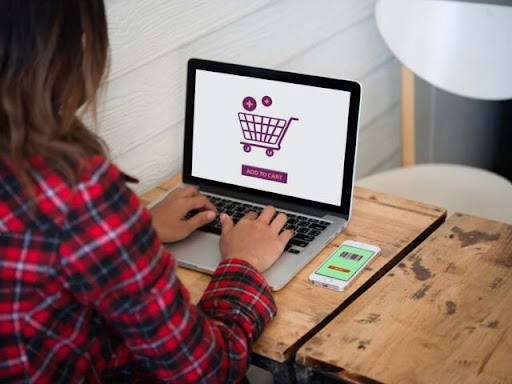
Starting a private label brand is an exciting venture that offers a wide range of benefits, whether you’re a budding entrepreneur or an established business owner looking to diversify. In today’s fast-paced, competitive market, private labeling has grown significantly, presenting opportunities to create custom products, differentiate from competitors, and build brand loyalty. This article explores the key advantages of launching a private label brand, from control over pricing and production to fostering stronger customer relationships and increasing profit margins.
What is a Private Label Brand?
Before diving into the benefits, it’s essential to understand what private labeling entails. A private label brand refers to products manufactured by a third party but sold under a retailer’s brand. These products are exclusive to the retailer and aren’t available through other outlets. For example, a grocery store might sell its own brand of snacks or beverages that are produced by a third-party manufacturer but bear the store’s logo and packaging.
Private labeling allows businesses to create unique product lines without the overhead of developing their manufacturing operations. This approach is popular across various industries, including beauty, fashion, food, health, and wellness.
1. Increased Control Over Branding and Marketing
One of the most significant benefits of starting a private label brand is the ability to have full control over branding and marketing strategies. As a private label owner, you decide how your products are presented to the public. This allows you to shape the perception of your brand and align it with your business values and target market. For instance, if your business focuses on sustainability, you can emphasize eco-friendly packaging and promote your brand with custom bottled water, showcasing your commitment to quality and the environment. This control over branding creates an opportunity to build a brand identity that resonates with your target audience, which is vital in today’s highly competitive market.
For instance, if your business focuses on sustainability, you can emphasize eco-friendly packaging and promote your brand as environmentally conscious. This control over branding creates an opportunity to build a brand identity that resonates with your target audience, which is vital in today’s highly competitive market.
Moreover, by creating a private label, you have the freedom to position your products uniquely, using customized packaging, labeling, and marketing materials that enhance brand recognition. This strong brand identity can translate into customer loyalty and a higher perceived value of your products.
2. Higher Profit Margins
Another appealing advantage of private labeling is the potential for increased profit margins. Because private-label products are created specifically for your brand, you can adjust pricing to reflect the value and exclusivity of the product. While the cost of manufacturing remains in line with your agreements with suppliers, you can sell the products at a price that gives you a favorable margin.
Additionally, private-label products tend to carry a higher perceived value because they are often marketed as premium, exclusive, or niche items. Consumers are often willing to pay more for products they can’t find anywhere else. This is especially true in industries like skincare, where personalized or high-quality products can command a premium price.
Private labeling also eliminates the intermediary costs associated with buying established brands, giving you the flexibility to optimize your pricing strategy. Since you control the entire supply chain—from production to pricing—you can tailor your prices to reflect demand and brand positioning, leading to higher profits.
3. Unique Product Offerings
A major challenge for businesses today is standing out in a crowded marketplace. With private labeling, you can offer unique products that differentiate your brand from competitors. By collaborating with manufacturers, you can create products tailored to your customers’ specific needs and preferences, setting your brand apart from mass-market offerings.
For instance, a business selling private-label skincare products can formulate items for specific skin concerns, such as anti-aging or sensitive skin. This level of customization allows you to serve niche markets that larger brands may overlook, giving you an edge in capturing a loyal customer base.
By developing your own product line, you can also respond quickly to market trends and consumer demands. For example, if you notice an increasing demand for organic products, you can swiftly introduce an organic line under your private label brand. This agility gives you the ability to innovate and stay ahead of the competition.
4. Stronger Customer Loyalty
Private-label brands offer a fantastic opportunity to build strong customer loyalty. When customers connect with your brand, whether through the quality of your products, the aesthetics of your packaging, or your customer service, they’re more likely to return for repeat purchases. Since private label products are exclusive to your store, customers can’t find the same product elsewhere, increasing their likelihood of staying loyal to your brand.
Additionally, private-label products allow you to foster brand loyalty through consistency. Since you control the production process, you can ensure that the quality of your products remains consistent, which is key to building trust with your customers. Happy customers are also more likely to recommend your brand to others, helping you grow your business organically through word-of-mouth marketing.
Moreover, having a strong brand identity can create an emotional connection with your customers. Whether it’s through your commitment to quality, sustainability, or social responsibility, customers are more inclined to align themselves with brands that reflect their values, leading to long-term loyalty.
5. Flexibility and Control Over Production
Private labeling offers businesses the flexibility and control to fine-tune production according to their specific needs. Instead of adhering to the constraints imposed by established manufacturers, you have the freedom to choose product specifications, packaging, and other aspects of production that align with your brand’s vision.
By working directly with manufacturers, you can influence the ingredients, materials, and overall design of your products. This control is particularly beneficial for businesses that want to ensure the ethical sourcing of materials, meet certain quality standards, or tailor products to specific market demands.
Additionally, the flexibility of private labeling enables businesses to adjust production quantities based on demand. You can scale up or down depending on market conditions, minimizing the risk of overproduction or stock shortages. This control allows you to optimize your inventory management, reduce waste, and ultimately improve profitability.

6. Reduced Competition and Better Shelf Space
Since private label products are exclusive to your brand or store, they don’t face direct competition from other brands in the same way that popular, widely available products do. This exclusivity gives you a distinct advantage in the marketplace, allowing you to capture customers who are seeking something unique.
Moreover, if you’re a retailer, private-label products give you greater control over shelf space. You can allocate premium shelf space to your private label brand, maximizing visibility and increasing the likelihood of sales. With the right marketing and product placement, you can ensure that your products become the go-to choice for customers, even when competing with other brands.
7. Adaptability to Market Trends
Private label brands are highly adaptable to changing market trends, giving you the flexibility to innovate and introduce new products quickly. Whether you’re responding to consumer demands for eco-friendly packaging, cruelty-free cosmetics, or new flavors in the food industry, private labeling allows you to stay ahead of trends without being dependent on the release cycles of major brands.
For example, if there’s a surge in demand for plant-based foods, you can collaborate with manufacturers to create a plant-based line under your private label. By adapting to market trends quickly, you can maintain relevance and appeal to customers who are looking for new and innovative products.
Conclusion
Starting a private label brand offers numerous benefits, from increased profit margins to greater control over branding, marketing, and production. By offering unique products tailored to your target market, you can differentiate your business from competitors and build strong customer loyalty. Whether you’re a retailer looking to expand your product offerings or an entrepreneur entering a new market, private labeling is a highly flexible and rewarding business strategy.



